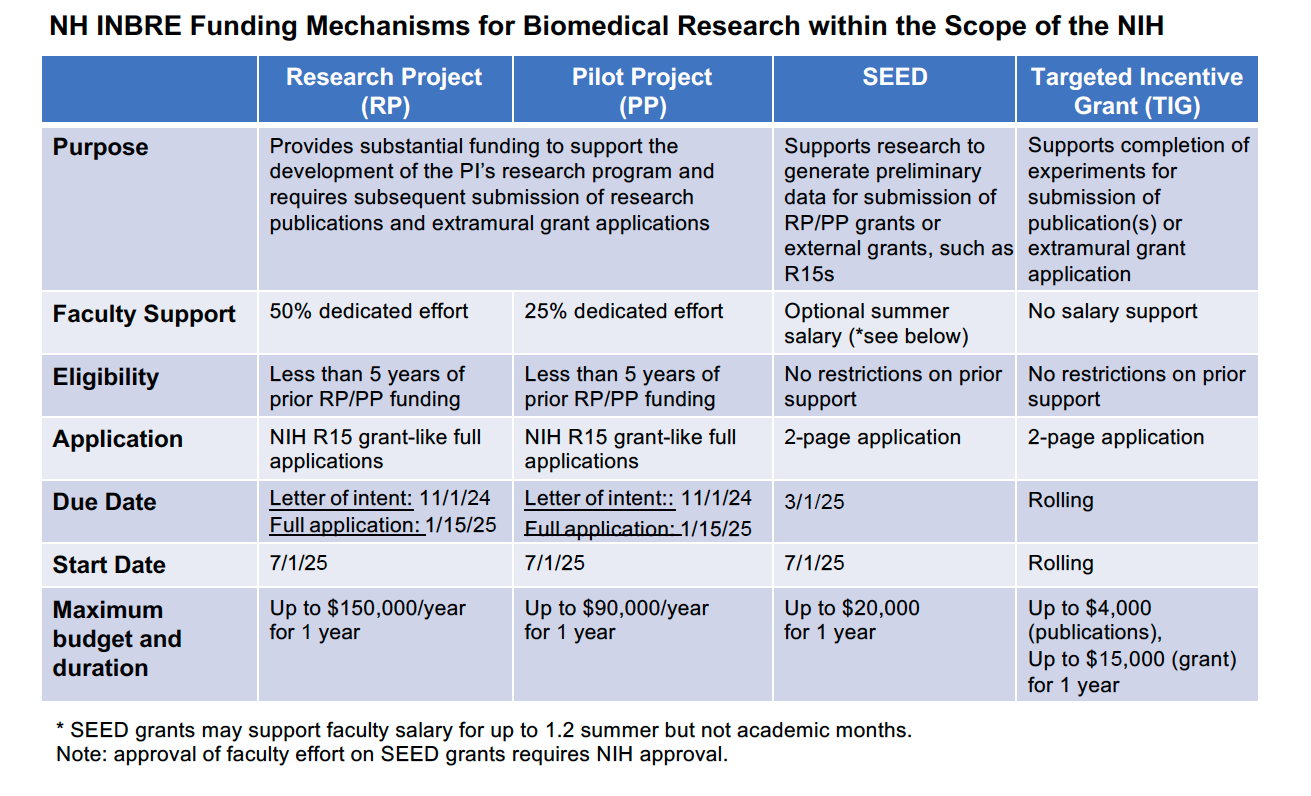NH-INBRE Funding Opportunities

NH-INBRE Research and Pilot Grants:
Partner faculty may submit requests for support for projects in which they commit 50% effort (Research Project, RP) or 25% effort (Pilot Project, PP). Both types of projects can be collaborative and are called Collaborative Research Projects (CRP, 50% effort by the PI) or Collaborative Pilot Projects (CPP; 25% effort by the PI). Collaborative projects must have a single PI from an NH-INBRE PUI partner and one Co-Investigator from a different PUI or one of the lead institutions.
NH-INBRE Seed Grant: to provide 1-year of funding (potentially renewable) to test new research idea(s) – entirely original areas of investigation for the investigator or a substantially new extension of previous work.
Proof-of-principle experimentation is one particularly relevant type of overall approach but other approaches may be responsive. Preliminary data are not required for a competitive submission.
NH-INBRE Targeted Incentive Grant: to expedite submission of-
- A) Manuscripts (especially data driven; reviews will be considered; however not letters to the editor, etc)
- B) New/ Revised Grant Applications to national funding sources (NIH, NSF, and/or foundations)
For PIs with research results that are far enough along that additional experimentation and writing will reach submission by no later than: papers: 6 months; grants: 9 months from TIG submission date
NH INBRE Targeted Grant APPLICATION - Rolling application
Submit applications to Jennifer.J.Therriault@Dartmouth.edu
To assist our NH-INBRE partners, we have compiled a list of some resources primarily for biomedical research funding. Please work with your institution for grant proposal submissions.
Federal Biomedical Research Funding
NIH Weekly Guide for 3-8-24: A weekly list of NIH program announcements and requests for applications.
NSF Bulletin: A list of NSF funding opportunities
Congressionally Directed Medical Research Program (CDMRP): The office of the Congressionally Directed Medical Research Programs (CDMRP) in the Department of Defense manages Congressional Special Interest Medical Research Programs (CSI) encompassing breast, prostate, and ovarian cancers, neurofibromatosis, military health, and other specified areas.
Grants.gov: A common website for federal agencies to post discretionary funding opportunities and for grantees to find and apply to them.
Private Biomedical Research Funding
For more information, please contact your grants office.